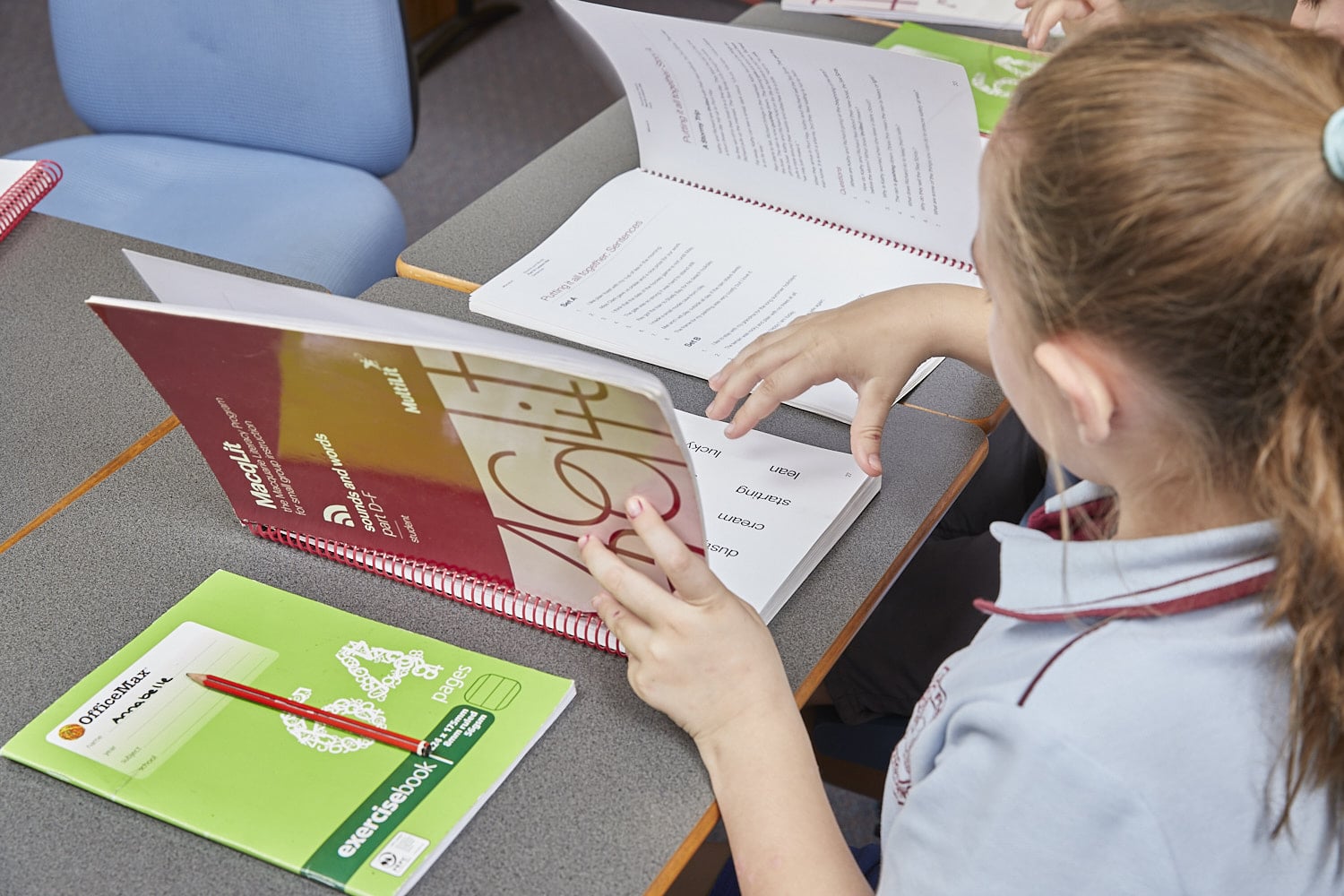A parent of a child completing one of our literacy intervention programs recently shared this interaction with his son: “A couple of weeks ago my son had a maths test at school, so I asked how he went. ‘Good, I could read the questions’, he replied to me. It melted my heart”.[1]
This story is a familiar one. Without the reading skills to keep up with classmates, all facets of school can become a struggle. As Dr Jennifer Buckingham, MultiLit’s Director of Strategy and Senior Research Fellow points out, “Reading underpins success across the entire school curriculum.”[2]
Research shows that best thing to do for struggling young readers is to provide support as early as possible and help them to make up lost ground in essential reading skills and the associated lack of confidence.

Year 3 a turning point
Year 3 is regarded as a critical point in primary education, as the curriculum switches from ‘learning to read’ to ‘reading to learn’. Reading demands substantially increase at this time. Students with reading difficulties will need targeted support to help them cope with these increased demands. Furthermore, in these higher grades, the teachers that students encounter may be less experienced in beginner-level reading instruction. The further a low-progress reader advances unaided, through upper primary and into high school without adequate support, the wider the learning deficit becomes.
“The longer we leave it with a struggling reader, the harder it gets to play catch up[3]”, says Pamela Snow, Professor of Cognitive Psychology at La Trobe University. Educators will need to build trust with older students, helping them regain confidence and prepare them to persevere, dedicating greater time and effort to make up what can start to become a wide gap. By that stage the situation is truly urgent: “Low literacy is associated with a range of outcomes that impact on quality of life, including early school leaving, unemployment and juvenile crime,” explains Buckingham.
The good news is, though it may take longer and require more intensive intervention, when the right supports are put in place, these older children and teenagers can make good progress.
MacqLit – evidence-based Tier 2 group literacy support for schools
After identifying students that need support, schools may feel overwhelmed or under-resourced to provide one-on-one tuition. MacqLit is a highly effective literacy intervention program for low progress readers aged between Years 3 and 9. Being a small group program, MacqLit can help teachers and learning support specialists in schools efficiently and effectively deliver literacy interventional support to students who are at similar levels.
Developed by MultiLit’s team of researchers and special educators, MacqLit is a Tier 2 intervention within the Response to Intervention framework, designed for small groups of four students. It is made up of two components:
- Scripted lessons to teach phonics or word attack skills
- Reinforced Reading, to provide generalised reading practice
The program comprises 122 carefully sequenced lessons of an hour each, to be delivered four times per week for optimal results. This successful program will meet the needs for the majority of struggling readers, leaving a much smaller number needing further, Tier 3 program of expert, individual support, such as our Reading Tutor Program or Word Attack Skills – Extension.
Suitable candidates and how MacqLit works with other MultiLit programs
Some students going into Year 3 may have had experience with the MiniLit program in Years 1 and 2, but need additional time to secure the basics and catch up with their class group. Others may have returned to whole-class instruction after a period of intervention, but find they are slipping behind in later primary years and will benefit from the systematic and explicit instruction of MacqLit.
MacqLit has delivered strong results for students who are dyslexic or with learning difficulties and is also suitable for students where English is not their first language – provided the student’s social English language skills are solid enough to understand the instruction.
For students with more serious reading impairments and who are not progressing in the group program, our one-to-one Reading Tutor Program and Word Attack Skills Extension should be considered as Tier 3, next step interventions. These one-to-one interventions can be tailored to the pace of the individual student. In the absence of these specific Tier 3 programs, MacqLit, while designed for groups, could also be delivered one-to-one.
Getting set at your school
Teachers, teacher aides, and learning support specialists can deliver the MacqLit program and need to first complete our two days of professional development training.
The MacqLit Kit contains all the materials required to deliver the program. A Testing and Lesson Records Book is required for each new group and an optional Activity Book can be provided to each participating student. A library of age-appropriate phonically regular or decodable books, as well as books that are written with more natural language, should be ready and accessible for the students as they practise Reinforced Reading. MultiLit’s Firecracker Books, hi-lo chapter books for students in Years 4-6, have been written specifically with the needs of MacqLit students in mind.
Order MacqLit now for your school or contact MultiLit for more information.
[1] MultiLit Google reviewer
[2] https://www.afr.com/policy/health-and-education/low-literacy-rates-weigh-heavily-on-the-economically-disadvantaged-20190914-p52rbb
[3] https://www.abc.net.au/4corners/digi-kids/11693706